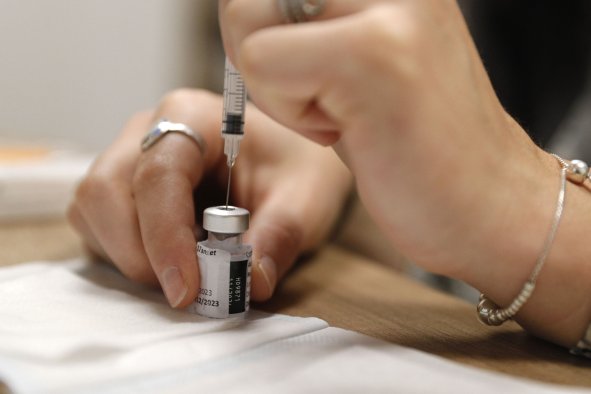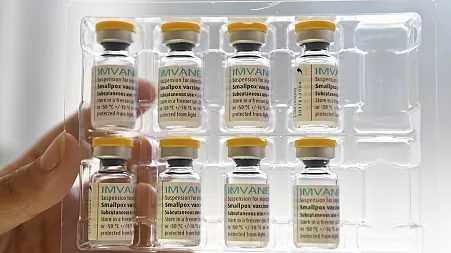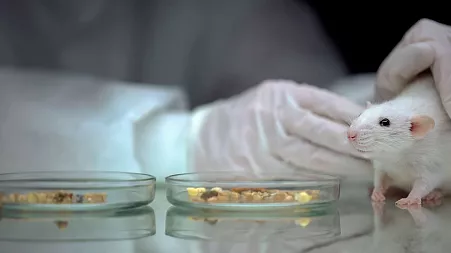Trying to cut calories? Skipping that dip could make all the difference, researchers say.
A new study conducted by researchers in the Penn State Sensory Evaluation Center reveals that pairing chips with dip makes people eat 77 percent more calories and at a faster pace than eating chips alone, while the numbers of chips eaten stays the same.
On average, per eating session, participants consumed 345 calories of chips and dip compared to 195 calories of chips alone.
"The most striking findings of our study is that people didn't eat fewer chips when dip was available—they ate the same amount of chips, plus the dip," John Hayes, study author and professor of food science at Penn State University, said in a statement. "This lack of compensation means that adding dip to chips can substantially increase overall energy intake without people realizing it."
Intuitively, many might assume that adding something like dip to a snack would lead people to eat fewer chips to compensate.
"But our research shows this is not the case with chips and dip. Our participants consumed the same amount of chips regardless of whether dip was present, leading to much greater energy intake when dip was available," he added.
Therefore, "consuming chips without dip may help individuals reduce their overall energy intake from snacks."
The study involved 46 adults who consumed 70 grams of ranch-flavored chips, equivalent to about 2.5 servings, with or without a cup of ranch dip during two separate visits.
Their intake was measured, and each eating session was video recorded and analyzed to track the number of bites and active eating time. The study authors used this data to assess various aspects of eating behavior, such as eating rate and bite size.
Research assistant Madeline Harper suggested that the increased consumption of chips and dip was due to larger bite sizes made possible by the inclusion of the dip.
With nearly one in three adults in the United States being overweight and more than two in five affected by obesity, according to the National Institutes of Health, researchers at the Penn State Sensory Evaluation Center are exploring ways for Americans to snack smarter.
Harper noted that the study was novel because there has been limited research on how external sources of oral lubrication, such as dips, affect the oral processing of salty snacks.
"Clearly, it has an influence on food intake, especially while snacking. However, in this chips-and-dip snack, the greater intake resulting from dip inclusion may have been facilitated by a larger total snack bite size, as opposed to faster chip eating rate," she said in a statement.
Despite providing approximately one-fourth of most people's daily calories and being a major source of energy in the typical American diet, snacking remains surprisingly understudied, Hayes noted.
He emphasized that gaining insights into snacking behaviors is essential for tackling issues related to overeating and obesity.
"This research opens up new avenues for exploring how the physical properties of foods can influence our eating behaviors and ultimately, our energy intake. If we can slow people down, we can influence energy consumption without giving up the pleasure from food," he said.
The U.S. Department of Agriculture's National Institute of Food and Agriculture supported this research. The full findings of the study are published in the peer-reviewed journal Food Quality and Preference.
Do you have a tip on a science story that Newsweek should be covering? Do you have a question about snacking or food behavior ? Let us know via science@newsweek.com.
Disclaimer: The copyright of this article belongs to the original author. Reposting this article is solely for the purpose of information dissemination and does not constitute any investment advice. If there is any infringement, please contact us immediately. We will make corrections or deletions as necessary. Thank you.




